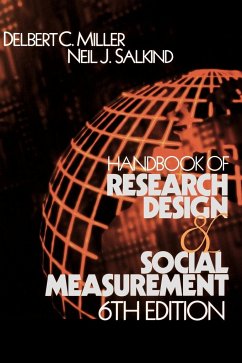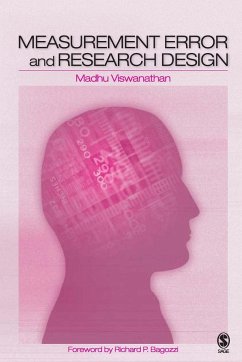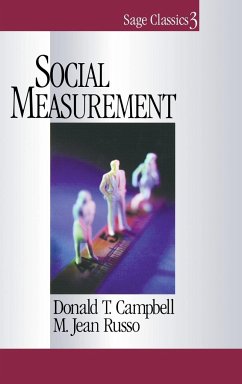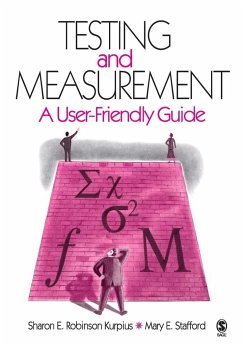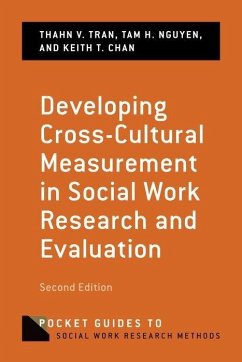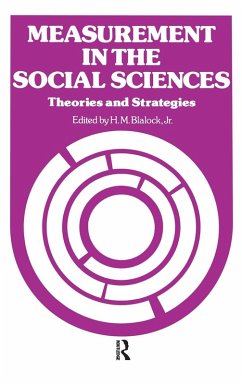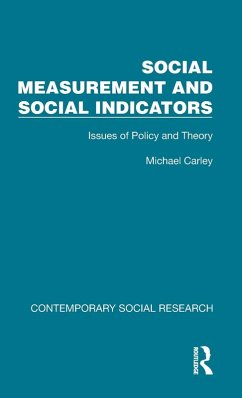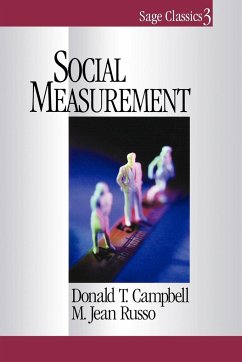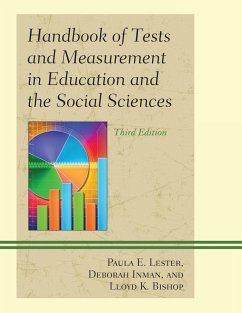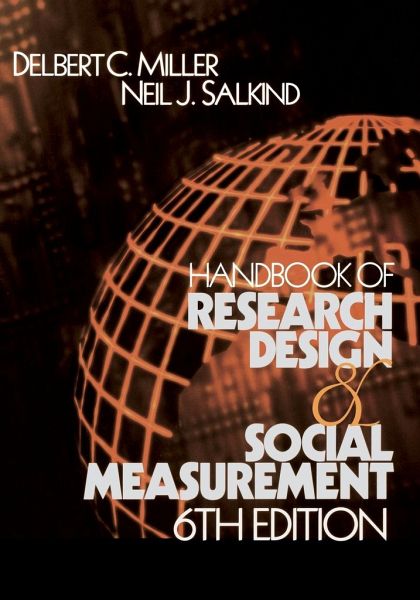
Handbook of Research Design and Social Measurement
Versandkostenfrei!
Versandfertig in 1-2 Wochen
213,99 €
inkl. MwSt.

PAYBACK Punkte
107 °P sammeln!
In addition to hundreds of new references features new to this edition include: a comprehensive introduction to qualitative methods including a review of existing computer applications for collecting and analyzing data; the latest information about the use of computers and online research techniques, including the use of the Internet to locate actual research instruments and journal articles; updated coverage on new scales, internal and external validity, and new analytic techniques with extensive references on each; abstracts, citations and subject groupings by measurement tool of the last five years of the American Sociological Review, Social Psychology Quarterly, and the American Journal of Sociology; extensive coverage of how to prepare manuscripts for publication, including a list of all journals covered by Sociological Abstracts along with the editorial office address and URL for each entry; new coverage of ethical issues; expansion of social indicators to include international coverage; discussion of the importance of policy research with presentation and discussion of specific models as an adjunct to both applied and basic research techniques; and the addition of an index to facilitate the reader's ability to quickly locate a topic.
"If a student researcher had only one handbook on their bookshelf, Miller and Salkind's Handbook would certainly have to be it. With the updated material, the addition of the section on ethical issues (which is so well done that I'm recommending it to the departmental representative to the university IRB), and a new Part 4 on "Qualitative Methods", the new Handbook is an indispensable resource for researchers." Dan Cover, Department of Sociology, Furman University The book considered a "necessity" by many social science researchers and their students has been revised and updated while retaining the features that made it so useful. The emphasis in this new edition is on the tools with which graduate students and more advanced researchers need to become familiar as well as be able to use in order to conduct high quality research.





